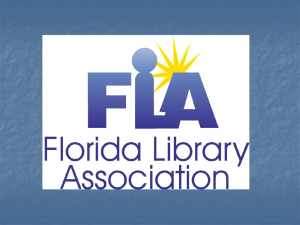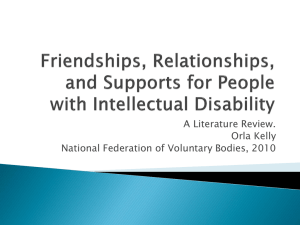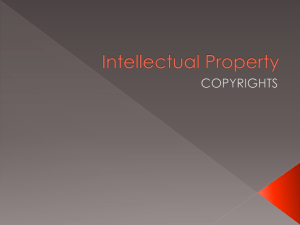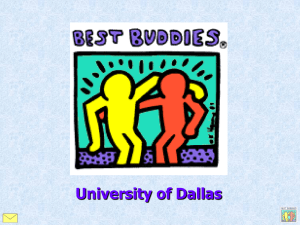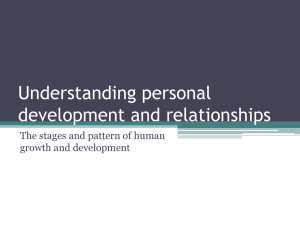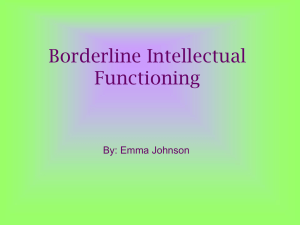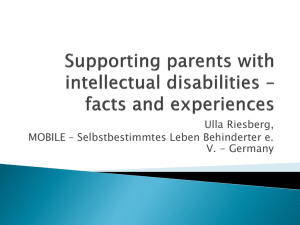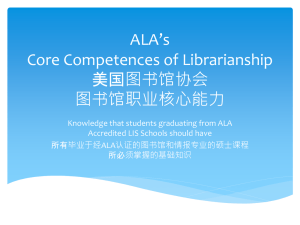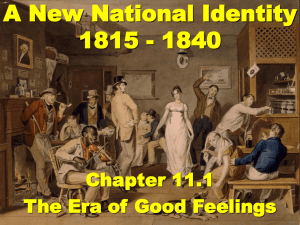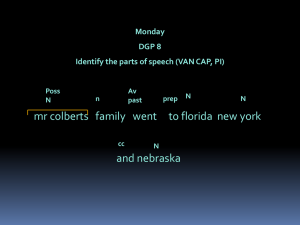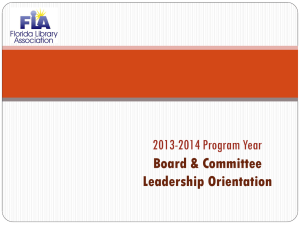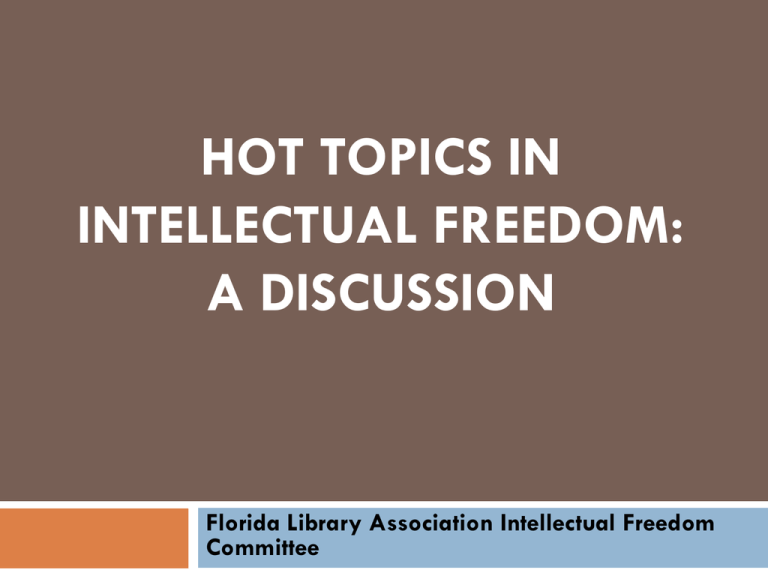
HOT TOPICS IN
INTELLECTUAL FREEDOM:
A DISCUSSION
Florida Library Association Intellectual Freedom
Committee
ALA Freedom to Read Statement
“There is no place in our society for efforts to coerce the
taste of others, to confine adults to the reading matter
deemed suitable for adolescents, or to inhibit the efforts
of writers to achieve artistic expression.”
Panelists and Moderator
Debi Cheek: eBooks and Access
Zach English: Internet Censorship- An International Perspective
Robin Shader: Challenges
Alyse Ergood: Librarians’ Intellectual Freedom and Rights
Sara Gonzalez, Moderator
Debi Cheek
Debi earned her MLIS from the University of South
Florida. She has worked as both a K-12 Media
Specialist and an Academic Librarian. Currently, she
works as an adjunct professor for Rasmussen College
teaching Introduction to Undergraduate Research.
Additionally, she is working on her doctorate in
Educational Technology at Florida Gulf Coast
University.
Zach English
Zach English is the Director of Library Services for Everglades
University. He has worked and interned in academic libraries for three
years, including libraries at Hillsborough Community College, Keiser
University and Everglades University. He earned his Master of Arts
degree in Library and Information Science from the University of South
Florida, and his Bachelor of Arts in Philosophy from the University of
Central Florida. He is a member of the Palm Beach County Library
Association, the Florida Library Association, and the Southeast Florida
Library Information Network (SEFLIN). He has served on FLA’s
Intellectual Freedom Committee for two years, and has also written for
FLA’s Media Clippings blog and Florida Libraries journal. His interest in
intellectual freedom issues comes from a belief that the rights to pursue
knowledge and to express oneself are core human rights.
Robin Shader
Robin Shader is the Director of the Northwest Regional Library
System, serving Bay, Gulf, and Liberty Counties, Florida. She is
a New Jersey native and received her MLS from Rutgers
University. Robin has worked in public libraries in New Jersey,
Georgia and Florida for the past 15 years. She has published
articles in School Library Journal, ALA's Applied Professional
Association’s Library Worklife, and has two essays in the book
Library Management Tips that Work published in 2011 by ALA
Editions. Robin is a member of the American Library
Association Intellectual Freedom Committee and is the Chair of
the FLA Intellectual Freedom Committee.
Alyse Ergood
Alyse Ergood is an Associate University Librarian in the Reference
and Instruction Department at Florida Atlantic University (FAU) in
Boca Raton. She is the social sciences librarian, and is a subject
specialist in nursing, languages and linguistics, and anthropology to
name a few. After receiving her MLIS from the University of South
Florida in 2006, Alyse became very active in a variety of library
and university committees. She is currently the Vice- Chair/
President Elect of the PBCLA, and a member of various committees in
SEFLIN and the ALA’s New Member Roundtable (NMRT). Alyse has
published and presented on various topics including marketing,
emerging technologies, and creating online tutorials. Her research
interests include online education, intellectual freedom, emerging
technologies, and various topics within the social sciences. Alyse is
working on her Master’s degree in Social Work at FAU.
E-BOOKS & ACCESS
Debi Cheek, Rasmussen College
Access
Device
Patron
Material
Device Access
Computer
E-Reader
Tablet
Phone
E-Readers and Your Library
Platforms
E-Books and Print Disabled Patrons
“(The) blind and other print-disabled users, for the first
time in history, gain access to the same books and
publications at the same price and at the same time as
the rest of society” (Mason, 2012, pp. 18-19).
Print Disabled Options
Magnification
Text-to-Speech
Braille
E-Book Options
iOS- Available with Apple Products
Voiceover
Option
Connect Bluetooth-enabled Braille display
Kindle
Very
limited accessibility (Kindle Fire)
Many books don’t offer text-to-talk feature
NOOK and Sony Reader
Not
accessible
Access and the Law
NFB v. Free Library of Philadelphia (Enis & Schwartz, 2012)
Pilot program Nook
Patrons 50+ could check out reader
Used Federal Funds to purchase
No Text-to-Speech
Violated Section 504 Rehabilitation Act & Title II ADA
NFB & Dept. of Justice v. Sacramento Public Library
Nook lending
Violated ADA
Other Options to Assist Print Disabled
Patrons
LEAP: Available at no cost for libraries who have
a relationship with Overdrive. Registered patrons
will have access to BookShare, a separate
collection of books and magazines in DAISY &
BRF formats.
Where did my E-Book go?
Clipart from: Operation Awesome
Digital Rights Management (DRM) and
Access
Type of device
Print, copy or download restrictions
Publisher Restrictions
Vendor Restrictions
INTERNET CENSORSHIP: AN
INTERNATIONAL PERSPECTIVE
Zach English, Everglades University
Threats to Internet Expression
Cyber-crime
Anti-Counterfeiting Trade Agreement
Protecting against obscenity and harmful content
Filters in school and library computers
Intellectual property
Stop Online Piracy Act (SOPA)
Protect IP Act (PIPA)
Intellectual Property Rights Enforcement Directive
(IPRED)
National security
WikiLeaks
ACLU’s “Don’t Filter Me” Project
Viewpoint-neutral content in
public schools
2000: Children’s Internet
Protection Act (CIPA)
Web-filtering software
categorizes content
Problems with allowing removal
of filters on a case-by-case
basis
2012: PFLAG v. Camdenton R-III
School District
URL Blacklist
Social Media and Social Protests
Social media sites like Twitter, Facebook and
YouTube have facilitated more dissident social
organizing internationally
With progress has also come attempts to
censor:
Being required to give up your email and
Facebook passwords
Government ownership of Internet Service
Providers
Governments hiring people to seed the Internet
with pro-regime content
Filtering and spying
Reporters without Borders’ 2012 “Enemies
of the Internet” Report
Egypt: Cut Internet access for five days during the
height of protests in January 2011.
Iran and Syria: Slow Internet speeds to a crawl so that
photos and videos cannot be transmitted.
Uzbekistan, Belarus, China: Block access to social media
sites during times of social protest.
Thailand: A news editor faces a 20-year jail sentence
for failing to withdraw comments posted on a news
website.
Russia arrests bloggers and creates cyber-attacks to
shut down websites that are critical of the government.
Companies Providing Filtering Technology
Repressive regimes use Western
companies to filter websites
and spy on Internet users
Syria has used BlueCoat (U.S.)
and Area SpA (Italy)
The European Parliament’s
resolution (2012)
Congressional investigation
A Threat of Internet Fragmentation
Internet sovereignty
2010:
Burma created a
national Web
Iran is working to create an
Islamic “halal” version of the
Web
Several countries restrict
access to local intranets
Threat to the idea of the Web
as global village
International Anti-Censorship Rulings and
Response
European Court of Justice
ruling: SABAM v. Scarlet
(2012)
ISPs
can’t be asked to filter
UN Human Rights Council
statement (2012)
Hacktivists
CHALLENGES AND CASES
Robin Shader, Northwest Regional Library System
ACLU vs. Davis County School District
Parents of a kindergarten student challenged the book because it
"normalizes a lifestyle we don't agree with.“
The District Library Media Committee cited a UT sex education law
prohibiting “advocacy of homosexuality” in curriculum materials and
ordered the book placed behind the desk and made available only with
a permission slip.
ACLU filed a lawsuit (11-13-12) on behalf of two students and their
mother. The complaint alleged that the "primary justification for removing
the book from the shelves is that, by telling the story
of children raised by same-sex parents, the book constitutes 'advocacy of homosexuality,' in
purported violation of Utah's sex-education laws."
Prior to answering the complaint the Utah Attorney General's office informed ACLU that the
book would be returned to open shelves and the School District agreed not to use "advocacy
of homosexuality" as a basis for removing books.
Board of Education v. Pico
Board of Education, Island Trees Union Free School District No. 26 v.
Pico, 457 U.S. 853, 102 S.Ct. 2799, 73 L.Ed.2d 435 (1982)
U.S. Supreme Court Justice Brennan declared in a plurality opinion:
"Local school boards may not remove books from school library
shelves simply because they dislike the ideas contained in those
books and seek their removal to ‘prescribe what shall be orthodox
in politics, nationalism, religion, or other matters of opinion.’ "
"If petitioners intended by their removal decision to deny
respondents access to ideas with which petitioners disagreed, and if
this intent was the decisive factor in the petitioners’ decision, then
petitioners have exercised their discretion in violation of the
Constitution."
Preparing for Challenges
Discuss concerns with patrons; in many cases a formal reconsideration
can be avoided.
Make sure you have a collection management plan specifying criteria
for adding and removing materials.
Make sure you have a clear reconsideration process.
Plans/policies should be adopted by your governing board and
periodically reviewed/reaffirmed.
Regularly train staff and library board members on library
policies/processes and the principles behind them.
Educate the community as much as possible on intellectual freedom
issues.
PROTECTING INTELLECTUAL
FREEDOM FOR LIBRARIANS AND
OUR PATRONS
Alyse Ergood, Florida Atlantic University
Why Protect?
To maintain and uphold freedoms
First
Amendment: Freedom of Religion and Press
Fourth Amendment: Guards against unreasonable
searchers and seizures (U.S. Constitution)
To uphold the Library Bill of Rights and advocate
for our patrons and our services
Intellectual Freedom
One’s right to self-expression and the right to access
information both fall under Intellectual Freedom.
Copyright: www.thewritingnut.com
Copyright www.ala.org
How to Protect Intellectual Freedom
Become involved in creating the mission and vision of
larger entity that library is a part of.
Ensure that library policy, mission, and vision align with the
Library Bill of Rights.
It all comes back to justifying support of Library Bill of
Rights.
Bridge the divide and engage with policy and decision
makers, including administrators
Understand and communicate with the key players
(Board of Trustees, Legislature, Administration and so
forth) Jones, B.M., 2009).
How?
Engage in academic and intellectual groups
Copyright: www.jenniferdefrancisco.com
How to Protect Intellectual Freedom
Self-educate and know your rights (or not) regarding
your computer files, emails, reference appointments,
calls, and computer and other equipment
Educate others about the importance of intellectual
freedom, such as your IT Personnel and garner support
on campus for intellectual freedom (Jones, B.M., 2009).
Advocate, Advocate, Advocate
For self, patrons, colleagues, freedom, access, equality
Self-Censorship
Where can it be seen?
Acquisitions (electronic and print)
Weeding
Selection of items displayed (or not) for book and
varied exhibits
Classes/Workshops
Work Presentations
Expression overall
Why and how is this possible?
Unconscious
Perceived or real lack of support
Fear of backlash or reprimand
Financial/Budget
Cyclical (or Top down)
Culture of a particular library or type of library,
etc.
Perpetuate status-quo
How to prevent?
Create a transparent environment(s) when possible
Copyright: http://topwalls.net/wp-content/uploads/2012/05/maldives-transparent-water-and-blue-sky.jpg
How to prevent?
Be honest with your self and others
Analyze your motives
Reflect on your actions or lack of
Remember your focus
Copyright: www.askville.amazon.com
Boundary Between Personal and
Professional Blurry
Copyright: www.flickr.com
Boundary Between Personal
and Professional Blurry
Social Media (webpage, blog, twitter, nonrelated personal Facebook pages and postings)
Research/Publications
Presentations
Grant and other applications
Who Protects Our Rights to Intellectual Freedom
ALA (American Library Association)
ALA-APA (American Library Association Allied Professional
Association)
American Association for University Professors (Private
academic libraries)
ACRL (Association for College and Research Librarians)
FEA (Florida Education Association) or other agency
UFF (United Faculty of Florida Union) or other union
United States Constitution and Bill of Rights
United States Courts
Conclusion
“Scholarship cannot flourish in an atmosphere of
suspicion and distrust. Teachers and student must
always remain free to inquire, to study and to
evaluate, to gain new maturity and understanding;
otherwise our civilization will stagnate and
die”(Jones, B.M., 2009, p. 17).
Become An
Copyright: www.unshelved.com
References- E-Books
Enis, M. & Schwartz, M. (2012, October 25). Free library
of Philadelphia resolves NOOK accessibility lawsuit. The
Digital Shift. Retrieved from
http://www.thedigitalshift.com/2012/10/hardware2/free-library-of-philadelphia-resolves-nookaccessibility-lawsuit/
Mason, A. (2012). Mainstream access to e-books: What
works, what doesn't, and what is still unclear. Future
Reflections, 31(2),18-24.
Challenge and IF Resources
FLA Intellectual Freedom Manual,
http://www.flalib.org/int_Freedom_Manual.php
FLA Executive Director, Faye Roberts, faye.roberts@comcast.net, 386-438-5795
FLA Intellectual Freedom Committee Chair, Robin Shader, rshader@nwrls.com
FLA Readers’ Rights and Privacy member group
ALA Intellectual Freedom Manual, www.ifmanual.org
ALA Office for Intellectual Freedom, oif@ala.org, 800-545-2433 x4223
Resources at www.ala.org/challengereporting
References- Librarians' Intellectual
Freedom
Jones, B.M. (2009). Protecting Intellectual Freedom in Your Academic
Library: Scenarios from the Front Lines. Chicago: American Library
Association.
Moody, K. (2010). Covert censorship in libraries. Australian Library
Journal, 54. Retrieved from
http://www.alia.org.au/publishing/alj/54.2/full.text/moody.html.
O’neil, R. (2008). Academic Freedom in the Wired World.
Cambridge, Mass.: Harvard University Press.

